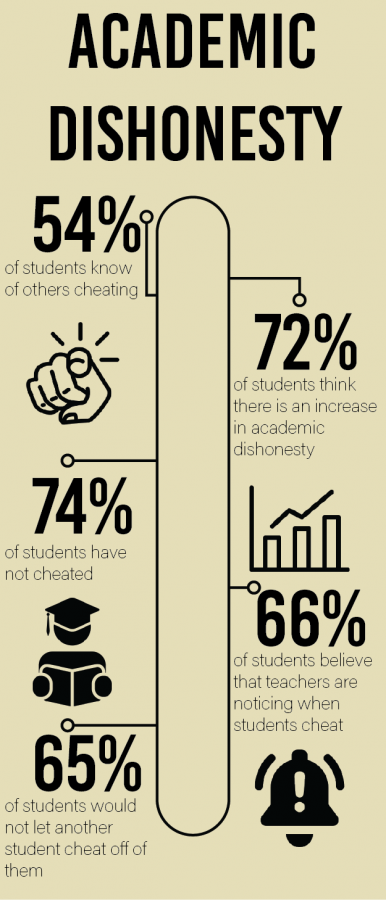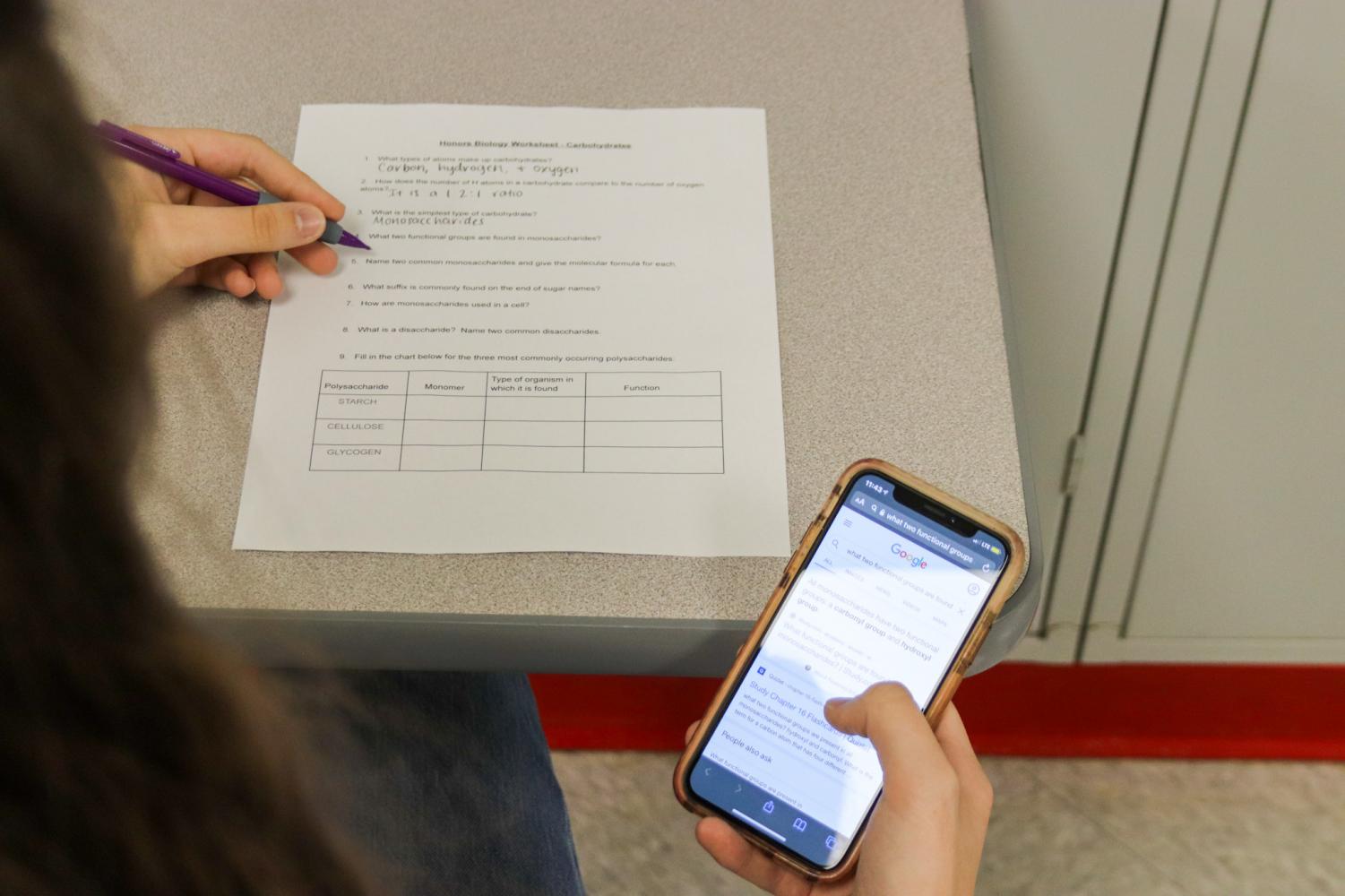The Simple Solution: Cheating at BSM
In the midst of hybrid learning, cheating has become far more accessible to online students.
January 12, 2021
Cheating has always been a smudge on the face of the education system, and with long distance learning, it has become even more prevalent. As students attend class via Zoom amidst the COVID-19 pandemic, students find cheating to be an easier option to better their grades. Although cheating has many consequences and risks, it has been a common occurrence in the 2020-21 school year.
Since Extended Online School began, there has been a significant change in students’ grades and work. The start of online school last spring marked a new battle for students and teachers alike. Because of the strategies to combat cheating, academic misconduct has gone down since last spring. “A huge amount of cheating happened last spring. We hadn’t figured out what you guys were doing. We were so overwhelmed too. When students went online they became A students,” math teacher Ms. Joanie Sauer said.
Of a survey taken from 70 students at BSM, more than 55% said they have seen an increase of academic misconduct as a direct result of online school. “If you’re at home taking a test, the impulse to want to look for the correct answer is human nature,” science teacher Ms. Lisa Bargas said.

Since the increase in academic misconduct, teachers have taken on the challenge to combat it. Teachers have been experimenting with different strategies to decrease the amount of cheating. They have started making multiple versions of tests, giving partner quizzes, and setting up the test-taking environment differently. “I’ve been making multiple versions of quizzes and tests, so that students can still work together, but their answers are going to be different,” math teacher Mr. John Groess said.
Some teachers find cheating even within the students’ answers. In a subject such as chemistry, there are often multiple ways to produce an answer. If a student answers a question in a complex way different from how the teacher taught it, it’s usually a sign of cheating. “Oftentimes there are several ways to answer a question; if I get answers back that are correct, but not in the way I taught it, that’s a red flag,” Bargas said.
For math class there are several online resources that can solve the problem for the student and show them the work. These calculators such as Photomath are a menace to math teachers. Similar to chemistry, in math there are usually several ways to find the solution to a problem. “It was very apparent they used Photomath from the work that was shown in a way we didn’t talk about,” Sauer said.
If a student is looking for a solution to a problem, most teachers would prefer the student just be honest and to come to them if they are feeling stressed or overwhelmed. Teachers don’t want their students to be afraid to talk to them, and to do so instead of falling back on the shortcut of cheating. “I would rather have it where you ask for more time and help than cheat,” Groess said.
Many would agree that cheating is going to happen no matter the circumstances, and students have found many different ways to get creative with their cheating during online school. Students have been found using their phones off camera, using packets and cheat sheets, and using the internet to find answers and various websites to help with math problems. Students are even on FaceTime with their friends while taking tests. “I have seen people cheat by copying someone’s homework, working together on a test and sending answers to others through their phones,” senior Lucio Fialo said.
Although teachers have been doing the best they can to prevent academic misconduct, it’s nearly impossible to prevent it all. Students now feel, especially since the beginning of online school, it is easier to get away with cheating and finding different ways to be dishonest has become a normalcy for some. The teachers’ have done their best to limit the cheating, but there is clear evidence of an increase in academic dishonesty as a result of online school. “I think cheating has increased because being online, [since] we are now open to many things on the internet. Most tests [and] quizzes were previously done in class and they are now mostly online. But, I can see where it has decreased, because most of our tests and quizzes are open notes, which makes it easier for us to get better grades and to work on our own,” Fialo said.
Teachers agree that in order to create a solution, first you must understand why the student is cheating. There are a number of reasons why a student might feel the need to cheat. “Cheating happens when students want to do well, but they don’t know how to do something, or if they need more time,” Groess said.
Students have found cheating to be an easier way to get better grades. It can also be a way to quickly get through a test they haven’t prepared for, but cheating also has its effects on the student as well. “I feel like it’s easier to cheat nowadays since we’re online, and it’s easier to get away with it. I feel guilty about cheating sometimes. I’ve used my phone and computer during tests and I feel if you don’t know the materials and it’s too late to ask, it’s an easier way to pass. I feel like everyone cheats,” an anonymous student said.
Cheating may seem to be beneficial for a student, but when a teacher finds a student cheating, it creates a lot more stress. Having to connect with the student, the school, and the student’s parents can be hard for a teacher. “It’s demoralizing, I think, for a teacher; no parent wants to get told their child was less than honest,” Bargas said.
Not only does it impact the teacher negatively, but the person cheating as well. There is a feeling of guilt that persists in a student that cheats. The fear of being caught and the guilt of doing the wrong thing tend to make the student even more stressed. “People definitely feel guilty when they cheat. It adds a lot of anxiety to a student being worried about being caught,” junior Teddy Madden said.
The main concern for teachers is the students’ emotional and mental health. Teachers care more about the students’ well being and making sure they are physically and emotionally healthy. “We want you guys to be physically healthy and mentally healthy and prepare you guys to go on and to be good in the world,” Sauer said.


